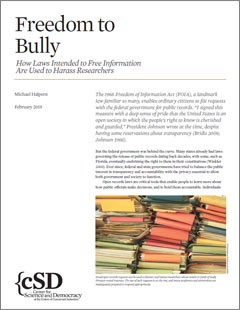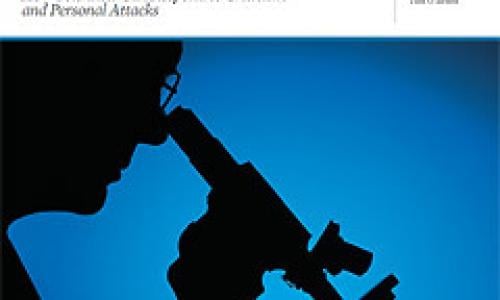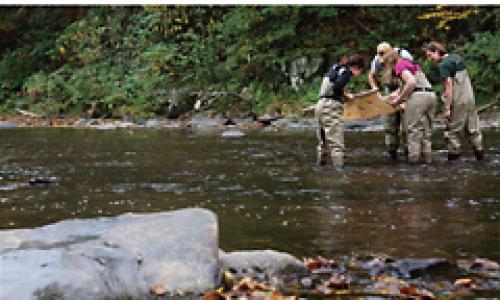Transparency and accountability in government are essential to democracy. The right of citizens to information about how public decisions are made is precious, and open records laws, such as the 1966 Freedom of Information Act (FOIA), are crucial to protecting that right.
However, the rights guaranteed by open records laws can be abused. As our 2015 report Freedom to Bully shows, open records requests are increasingly being used to harass and intimidate scientists and other academic researchers, or to disrupt and delay their work. Academic institutions and other involved parties need to be prepared to respond to these requests in a way that protects the privacy and academic freedom of researchers while complying with the law and respecting the public's right to information.






